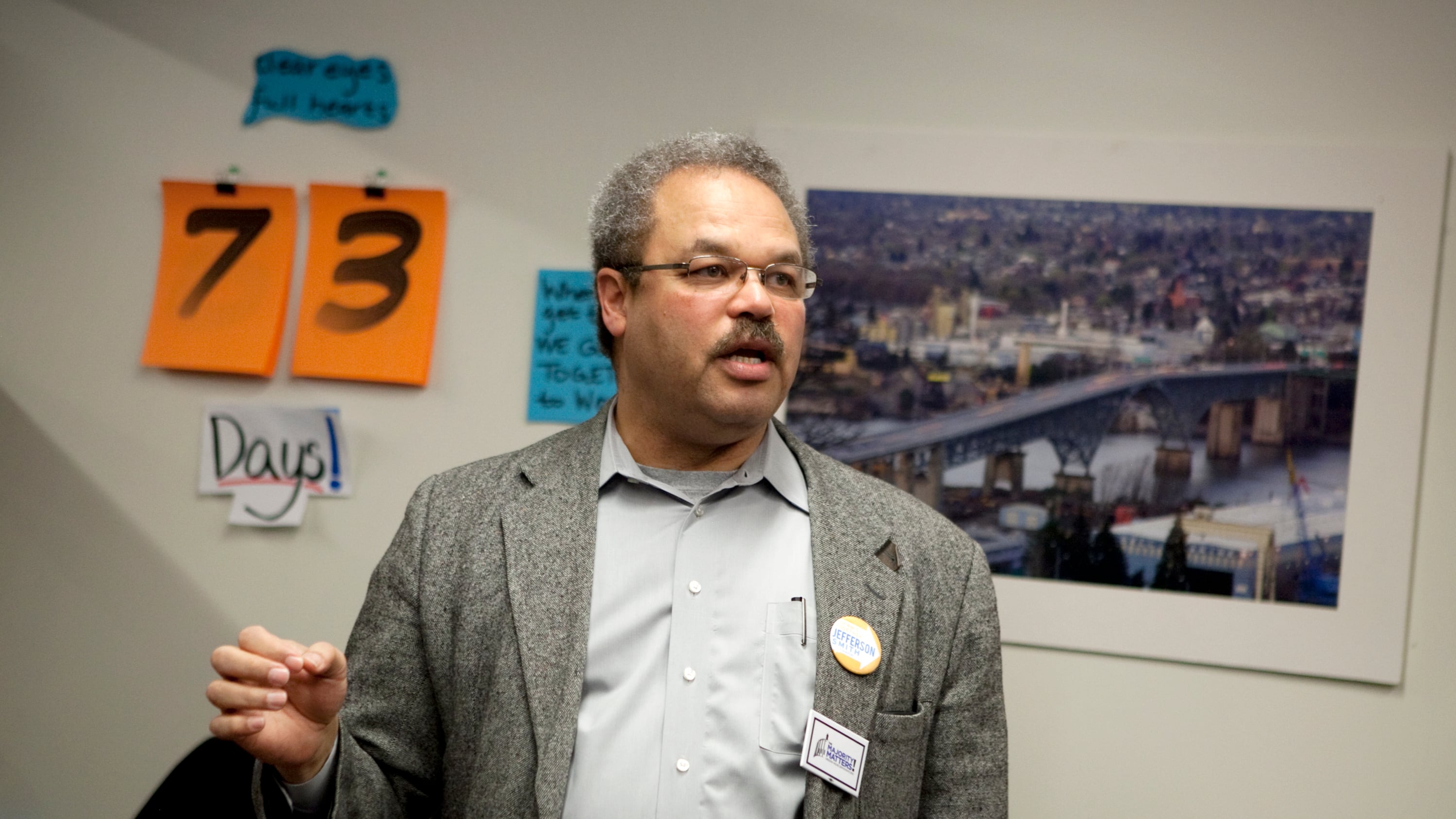Senate President Rob Wagner (D-Lake Oswego) has named state Sen. Lew Frederick (D-Portland) as interim co-chair of the Joint Committee on Transportation, replacing Sen. Chris Gorsek (D-Troutdale), who is recovering from open heart surgery.
“As of today, Sen. Frederick will be appointed as the chair of Joint Transportation until the expected return of Sen. Gorsek,” Wagner’s spokesman, Connor Radnovich, told WW on April 20. “When Sen. Gorsek comes back to the Capitol, he will be renamed as chair. To fill Sen. Frederick’s slot as a committee member, Sen. Wagner will be appointing himself.”
Normally, a temporary change in committee chair would not merit much notice, but for the remainder of the current legislative session, the Joint Committee on Transportation will make decisions of lasting consequence for the metro area involving two proposed megaprojects on Interstate 5.
Aside from abortion and gun bills, there may not be an issue generating more emotion and angst in the Capitol than the proposed expansion of I-5 at the Rose Quarter and the replacement of the Interstate Bridge between Portland and Vancouver, Wash.
Both projects come with enormous price tags ($1.45 billion and $6.5 billion, respectively), and the Oregon Department of Transportation acknowledges it lacks the money to pay for either of them.
Back in 2017, when lawmakers approved funding for the Rose Quarter expansion, they ordered ODOT to figure out how to charge drivers for some of the costs of that and other projects included in a $5 billion transportation package. Since then, the agency and a wide array of interested parties have debated two related but different concepts: tolling to pay for projects (ODOT’s preference) or congestion pricing to reduce traffic and fund transit and other alternative modes of transportation (the option favored by environmentalists).
ODOT is currently working on two different plans to charge motorists for using I-5 and Interstate 205: the Regional Mobility Pricing Project and the narrower I-205 Tolling Project.
In addition to debate about how the money road users pay might be spent, there is widespread concern among communities and lawmakers along I-205 about both the potential costs and the diversion of traffic to local streets as drivers change routes to avoid paying.
ODOT wants lawmakers to commit $1 billion this session to match Washington’s pledge for initial funding for the bridge, and it would like to get clarity on funding streams for other projects, including the Rose Quarter. (The states propose to split the cost, although Portland economist Joe Cortright has noted that Washington residents use the I-5 bridge far more than Oregonians do.)
The highway department depends on gas taxes for most of its funding. That source is drying up as cars grow more fuel efficient and the vehicle fleet electrifies. A pending proposal to tap the state’s general fund for $1 billion drew immediate pushback from Gov. Tina Kotek, so the discussion of how to generate money is only likely to grow more intense.
That’s why Frederick’s appointment is significant. The veteran Portland lawmaker has asked hard questions about ODOT’s plans fo I-5 in the past, and environmentalists and many lawmakers concerned about tolling and congestion pricing have bristled at the lack of public testimony on those issues under Transportation’s other co-chair, Rep. Susan McLain (D-Hillsboro). Now that Frederick is sharing the committee gavel, that is likely to change.
